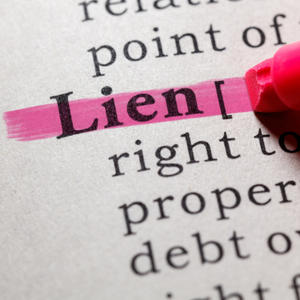
Selling a house with a lien in Hawaii can be challenging, but understanding your options makes it easier. This guide covers key steps, legal requirements, and solutions to protect your interests. For expert assistance, House Buyers Hawaii can help you sell your home as soon as possible.
Key Highlights
- In Hawaii, selling a home with a lien on it requires the resolution of legal disputes on the property before the owner can sell it.
- Mortgages, taxes, and judgment lien sales each influence sales in unique ways. These must be detected and resolved in a timely manner.
- Hawaii law requires the satisfaction or payoff of any property lien, and title companies in Hawaii are legally responsible for ensuring compliance at closing.
- Paying the lien on the house is the quickest and most reliable way to ensure the effortless closing of the property. This is possible through practical and timely communication with lienholders and organized planning.
- Hawaii’s local customs and cultural norms must be adhered to as a selling point towards the members of the society.
Understanding a Lien on Your House in Hawaii
When it comes to selling your house in Hawaii, property owners need to understand how a property lien works and how it can limit their rights to ownership. There are various legal problems that can arise that can obstruct the transfer of the title or cause a smooth sale to be a problem.
Be it a judgment lien, mortgage lien, or some other form of encumbrance, the unpaid debts of each homeowner in Hawaii must be settled before the property can be sold to interested buyers.
This synopsis discusses the impact a lien has on a piece of property, important legal words, and the meaning of the term to the owners who intend to untangle the legal issues before attempting to divest. Find out how ownership is affected by a lien and what every owner and debtor is required to know concerning real estate in Hawaii.
How a Property Lien Impacts Ownership Rights
A Hawaii lien is a legal claim on a property that limits how an owner can control, transfer, or profit from it. Whether it’s a mortgage, judgment, or other lien, it signals to buyers and professionals that a creditor has an interest in the home. This restricts ownership rights and complicates sales since liens appear on the property’s title.
To sell, homeowners usually must resolve the lien first, either by paying off the debt, arranging a payoff at closing, or negotiating with the creditor. Buyers often hesitate to purchase until the lien is cleared, making resolution essential for a smooth transaction.
Practical Steps for Hawaii Homeowners
- Get a title report to confirm lien details
- Contact the creditor about repayment or settlement
- Consult a Hawaii real estate attorney for guidance
- Collect loan agreements or court judgments
- Work with escrow/title companies to arrange payoff
- File a lien release with Hawaii’s Bureau of Conveyances
- Monitor property records for future liens
By proactively addressing liens, homeowners can protect their interests, avoid delays, and ensure a clean transfer of ownership in Hawaii.
Types of Liens That Can Affect a House

Before selling your house in Hawaii, it’s important to recognize the various liens that might impact your property and the title. Not all liens are created equal; some originate from regular financial arrangements like a mortgage lien, while others, such as judgment liens or tax liens, arise from legal or tax obligations.
Hawaii’s unique property landscape adds an extra layer of complexity, especially when it comes to resolving these legal claims before a real estate sale. Understanding the differences, origins, and impacts of each type of property lien prepares homeowners for a smoother transaction and helps avoid unwanted delays or legal challenges during the home sale process.
If you’re unsure how to handle liens on your property or need guidance to move forward with your sale, don’t hesitate to contact us for personalized assistance. Taking action early can help you clear issues faster, protect your equity, and make your selling experience more efficient.
Key Differences Between Mortgage, Tax, and Judgment Liens
Property liens in Hawaii come in different forms, each with unique implications for owners and buyers.
- Mortgage liens are voluntary, created when a homeowner takes out a loan. The lender has a claim on the property and can foreclose if payments are missed. These liens must be paid off at closing before a home can be sold.
- Tax liens are involuntary and imposed when owners owe back taxes. They carry strong enforcement powers, often taking priority over other liens, and must be cleared before transferring a clean title.
- Judgment liens arise from court rulings, such as unpaid debts or lawsuits. While they don’t always lead to foreclosure, they make selling or refinancing difficult since the debt follows the property until it is resolved.
No matter the type, liens complicate real estate transactions. Title searches reveal them, and sellers must address outstanding debts before closing. Clearing liens through repayment or settlement ensures a smooth transfer of ownership and a clear title in Hawaii.
Legal Considerations Before You Sell Property With a Lien
Selling a house with a lien in Hawaii involves a careful understanding of the legal issues unique to the state’s real estate environment. Before moving forward with any sale, property owners must address how liens, judgments, and unpaid taxes can affect the transaction and threaten their ability to deliver a clear title.
Navigating Hawaii law and working closely with a title company is vital to prevent last-minute complications at closing. This part of the process means grasping what your responsibilities are as the owner or debtor, ensuring you’ve met all obligations around liens, whether it’s a mortgage lien, property lien, or tax lien, and securing the required lien release to finalize your house sale.
For those seeking faster solutions, working with investor home buyers in Honolulu and nearby cities can be a practical option. These buyers are often willing to purchase properties as-is, even with liens, offering a quicker route to closing and helping sellers avoid delays tied to traditional market transactions.
Hawaii’s Laws on Lien Resolution and Sales
Hawaii’s real estate laws necessitate the consummation of liens on a property prior to addressing the title’s transfer to a new owner. The title companies conduct a cursory review of the parcels controlled by the owner as a prerequisite for extended services, examine the tax liens that must be settled before the closing or payment date, and typically wire the funds to the seller’s creditors by closing. Taking these steps is also critical for homeowners who want to prevent foreclosure on their house, as clearing liens and maintaining good standing with creditors can help avoid legal and financial complications.
The owner of the property must acquire the necessary agreements from the financial institutions, the tax authorities, or the judiciary. The title company also has to have clear mechanisms to ascertain payment of those claims and then secure the release, thereby purifying the title to be transacted with. The pristine reputation of a seller has to be maintained, as he has to file with the authorities and legally offer the property without any liens, tax obligations, or pending court decisions; otherwise, the sale will be lost.
The seamless execution of the closing of the transaction with the title company, creditors, and real estate company ensures the best legal protection to the buyer as well as the seller on a property transfer that takes place in Hawaii.
Steps to Take When Preparing Your Property for Sale

Getting your house ready to sell in Hawaii involves more than simple repairs or staging; it’s essential to address any potential legal roadblocks, especially property liens. Whether your home has a mortgage lien, tax lien, or judgment lien, the path to a successful sale starts with a comprehensive strategy focused on identifying all encumbrances and planning to clear them.
Learning how to conduct a precise title search, communicate with lienholders, and work within Hawaii’s unique real estate laws will help ensure a smooth transfer. This approach not only safeguards buyers but also protects your interests as the property owner.
Identifying the Lien Type and Communicating With Lienholders
As with any other Sale , a Hawaii home sale is contingent on the various mortgage, tax, and Lien Judgement associated with the property being sold. First step to determine these is carrying out a title search. This step is usually assigned to a title company.
Once the lien is identified, contact the lienholders immediately to obtain a payoff statement or an underlying lien settlement. This has to do with the breach of communication that the settlement is intended to serve. It also prevents delays during closing and gives comfort to the buyers and sellers. In the case of multiple liens, it is important to ascertain which creditors rank higher on the priority basis, as it changes the distribution of sale proceeds.
Record a short note on the various lien types. Whenever you discuss or engage with lienholders, you serve your best protective interests while also keeping the buyer’s confidence in you. This way, you will ease your own worries in a smooth and compliant way while selling a property in Hawaii.
Handling Sale Proceeds With a Lien on the Property
To complete the sale of a home with a lien in Hawaii involves strategically managing the sale proceeds, working with the title company, and understanding the payoff and closing process. When a property is sold with a mortgage lien, tax lien, or judgment, the proceeds of the sale, referred to as sale proceeds, must first resolve any existing obligations, thereby guaranteeing that a lien-free title is transferred to the new owner.
This stage depends on accurate lien verification, timely coordination with lienholders, and focused involvement from all parties, particularly at the close. By completing these actions in an orderly fashion, the seller and buyer are shielded from risk, and Hawaii’s real estate regulations are maintained, which allows for a good title to be conveyed and the property sale to be finalized.
Ordering Lien Payoff and Settling Balances at Closing
Once you accept an offer on your Hawaii home, clearing any liens becomes the top priority. The title company conducts a final title search, requests official payoff statements from lienholders, and prepares closing documents showing how sale proceeds will settle each debt.
At closing, the buyer’s funds go into escrow, and the title company disburses payments to lenders, tax authorities, or creditors before releasing any remaining balance to the seller. This ensures the title is cleared, buyers are protected, and the sale complies with Hawaii law.
If sale proceeds are insufficient to cover liens, additional negotiations or lender approval for a short sale may be required. By coordinating early with lienholders, your agent, and the title company, you can avoid delays and ensure a smooth, legally sound transaction.
Cultural Considerations When Selling a House With a Lien in Hawaii

Navigating the sale of a house burdened by a lien in Hawaii extends beyond legalities and title clearances; it also means being attuned to the state’s distinctive cultural considerations. Hawaii’s real estate market is shaped not only by strict law and property protocols but also by deep-rooted local practices and community traditions that influence every step of a property transaction.
Sellers need to acknowledge and respect these traditions when handling a sale involving a judgment, tax, or any other lien. Recognizing how these cultural influences intersect with the technical process of selling can lead to smoother negotiations, community trust, and ultimately, a more successful transfer of home ownership in Hawaii.
Respecting Local Practices and Community Traditions
In Hawaii, selling a house with a lien goes beyond the legal processes. Cultural practices and community sentiments, perhaps more than anywhere else, impact such activities, especially in areas of great historical significance or within a context that values such sensitivities. Sellers ought to communicate, with lienholders and other debtors, the property encumbrances in a neighborly way.
Restoration of mortgage liens, tax liens, or judgment liens involves collaboration with attorneys and title companies, but other practices may correspond to the constructed local ethos. This can mean reaching out to the local community or even older members of community structures, for the sake of trust and addressing local customary circles.
These sellers can manage the legal aspects of the sale alongside cultural relations to foster more robust community bonds, protect the character of the neighborhood, and ensure smoother dealings in the area. Such a blend of community engagement and cultural appreciation positively uplifts trust in the Hawaii home market and preserves legality in transactions.
Practical Tips for a Successful Lien Release
Removing a lien from a property title in Hawaii requires practical tips that include both the legal aspects as well as the realities of the local real estate ecosystem. Preparation of documents in an accurate manner and absence of serious roadblocks in communication with the relevant people is most likely what keeps the proactive roadblocks away from selling the house.
Given that Hawaii has a strange mix of law and culture, knowing the approach in which a lien is released is pivotal to an effortless change of ownership. This documentation removes any guesswork from the critical constituent contacts, paperwork, and checklist items, which will ensure the sale is smooth and the property is legally clear at closing.
Checklist: Essential Documents and Contacts for a Smooth Sale Process
Selling a house with a lien in Hawaii requires gathering the right documents early. Start with a title report to identify all liens, then collect payoff statements from lenders, tax offices, or creditors. Keep your deed, mortgage statements, and any prior lien releases organized in a dedicated file.
Also, prepare a contact list with your title company, agent, lender, and legal counsel to avoid delays. Double-check names, parcel numbers, and amounts to prevent closing issues. In Hawaii, being thorough with documents and communication ensures legal compliance, builds buyer confidence, and helps deliver a clear title for a smooth sale.
For homeowners looking for alternatives, working with cash home buyers in Hawaii and nearby cities can simplify the process. These buyers often purchase properties as-is, even with liens, helping you avoid lengthy delays and making it easier to close quickly. This option can be especially appealing if you need to sell fast or want a hassle-free transaction while still protecting your interests.
FAQs
Can I sell my house in Hawaii if it has a lien on it?
Yes, you can sell a house in Hawaii with a lien, but you must resolve or pay off all property liens before transferring ownership to the buyer. The title company will ensure all liens are satisfied during closing to provide a clear title to the new owner.
What types of liens could affect the sale of my Hawaii property?
The most common liens are
- Mortgage liens (linked to home loans)
- Tax liens (from unpaid property taxes)
- Judgment liens (resulting from court judgments or lawsuits)
Each type impacts the sale process differently and must be addressed before closing.
How are liens typically resolved during a real estate sale in Hawaii?
Liens are usually paid off using funds from the sale proceeds at closing. The title company requests official payoff statements, disburses payments to lienholders, and only then releases the remaining proceeds to the seller. This ensures the buyer receives clear title.
What should I do to prepare my Hawaii property with a lien for sale?
Follow these steps:
- Order a title report to identify all liens
- Obtain payoff statements from all lienholders
- Organize documents, including your deed and lien releases
- Communicate proactively with your real estate agent, title company, and any creditors
Are there any special cultural considerations when selling a lien-encumbered house in Hawaii?
Yes. In Hawaii, transparency, respect for community traditions, and open communication are highly valued. Be forthcoming about property issues and involve relevant community members or advisors if appropriate, to foster trust and ensure a respectful transaction.
Wondering if you can sell a house with a lien? The good news is, yes, you can. If you want to sell quickly, avoid repairs, or prefer a hassle-free process, House Buyers Hawaii is here to help. We provide fair cash offers, take care of all lien-related details, and make the transaction smooth from start to finish. Have questions or ready to sell? Call us at (808) 393-1303 today for a no-obligation cash offer.
Helpful Hawaii Blog Articles
- How to Do Sale By Owner in Hawaii
- Capital Gains Tax After Selling a House in Hawaii
- Can You Sell a House With a Lien in Hawaii
- How to Sell House Inherited in Hawaii
- FHA Repair Requirements For Hawaii
- How Long to Live in a House Before Selling in Hawaii
- Can I Sell My House During Divorce in Hawaii
- Checklist For Selling A House in Hawaii
- Sale of A Rental Property in Hawaii


